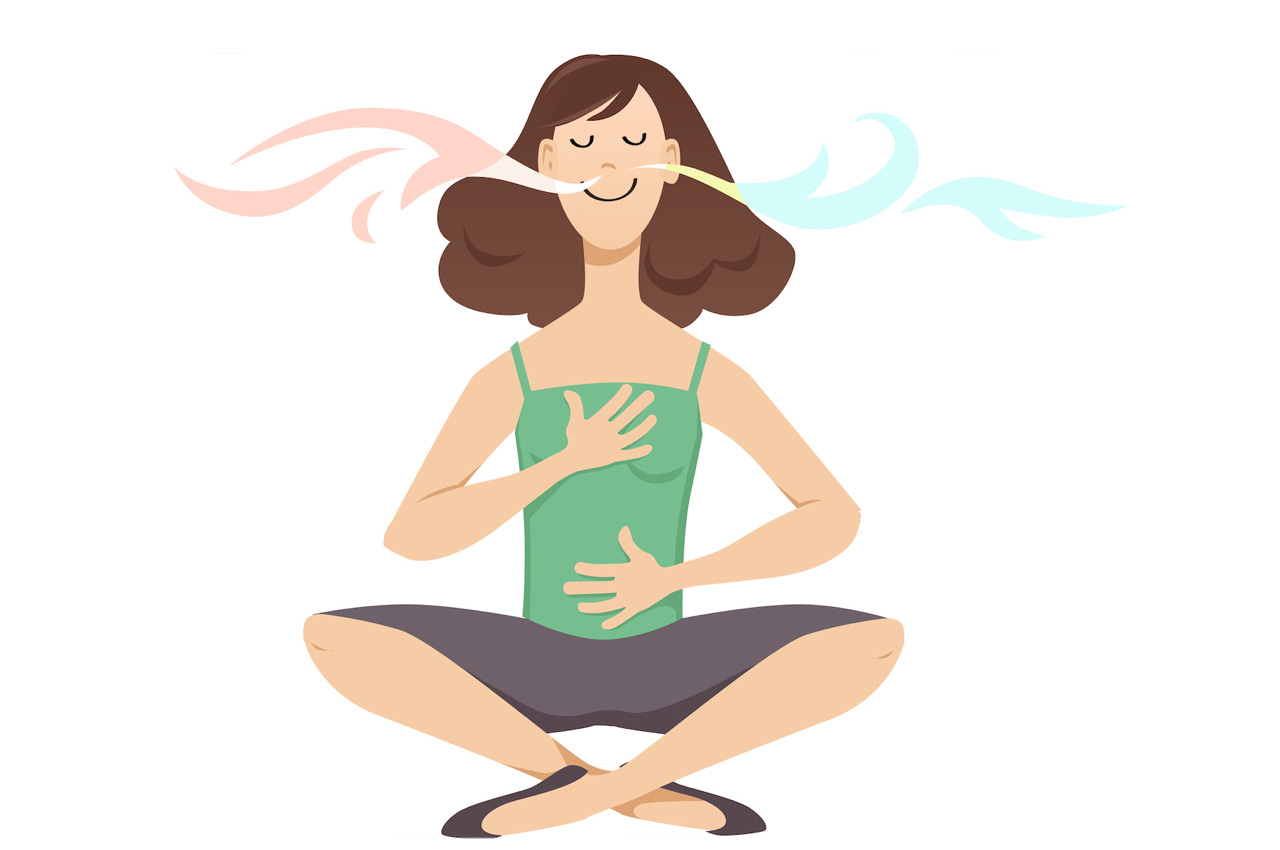Breathe to Heal: The Science Behind Controlled Breathing
Written by Hanaa Saleem
The other day, as the clock was ticking and it was getting closer and closer to the dreaded time where I had to take my math test, I had caught myself holding my breath. It was an interesting catch but I didn’t have time to reflect on it further. As the test went on, I would even notice myself increasingly not breathing or taking shallow breaths instead.
When I left the classroom, I also observed how I felt a bit off, tired and slightly out of focus. Later, I thought about how my shallow breathing during the test probably didn’t help. It made me think about how easy it is to forget something as basic as breathing when we’re stressed. Which, as always, made me more curious to explore. Turns out sometimes you can forget to do something as instinctual as breathing too.
So, I did some research, and found out that during stress, the body activates the sympathetic nervous system, also known as the “fight or flight” response. This triggers shallow, rapid breathing from the chest, which reduces oxygen intake and increases levels of carbon dioxide in the blood. Essentially, the stress deprives your body of oxygen and leads to symptoms like dizziness, fatigue, poor concentration, and increased anxiety. This was exactly what I experienced during my test.
Breathing exercises, especially diaphragmatic or “belly” breathing, help to counteract this response. By engaging the diaphragm and slowing the breath to about 6 to 10 breaths per minute, you stimulate the vagus nerve, which activates the parasympathetic nervous system. This is the opposite of the sympathetic nervous system, aligning closer to the “rest and digest” response. This approach now shifts this anxiety and oxygen deprivation into lowered heart rate, decreased blood pressure, as well as reduced cortisol (body’s primary stress hormone that is secreted in high stake situations) circulation.
There’s even strong clinical evidence supporting the use of breathing techniques to manage anxiety, improve cognitive performance, and even reduce symptoms of conditions like asthma, insomnia, and hypertension. One study published in Frontiers in Human Neuroscience found that just 20 minutes of slow-paced breathing significantly enhanced attention and emotional regulation. Another study in the Journal of Clinical Psychology showed improvements in mood and physiological resilience after just a few weeks of breath-focused mindfulness training.
So now I encourage you to make it a habit to spend a few minutes before exams or high-pressure situations practicing deep, controlled breathing. It’s a simple intervention, but its physiological effects are powerful. What started as a random observation in a math classroom turned into a daily practice rooted in science, and one that I think more people should take seriously.
Written by Hanaa Saleem from MEDILOQUY


